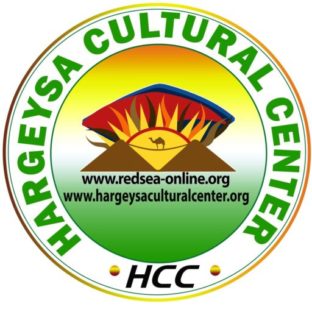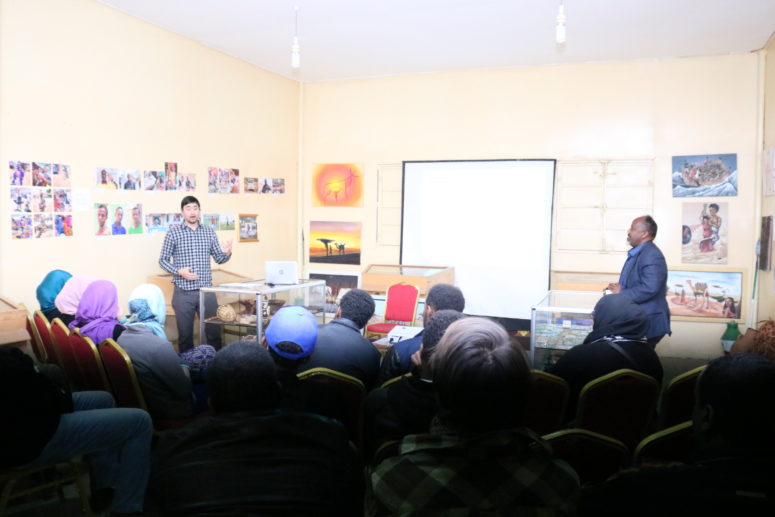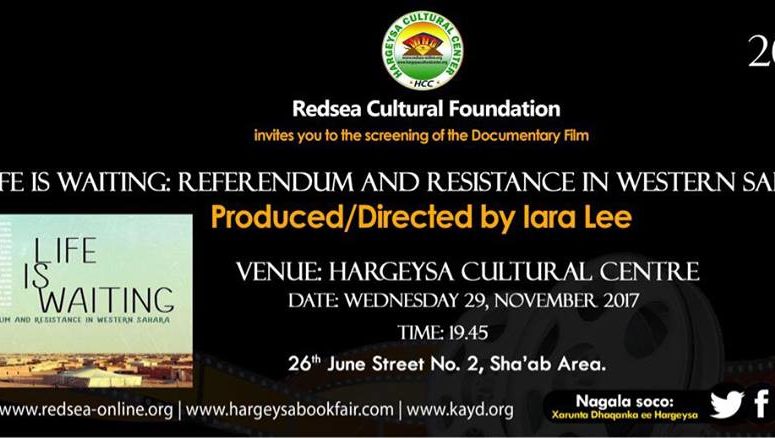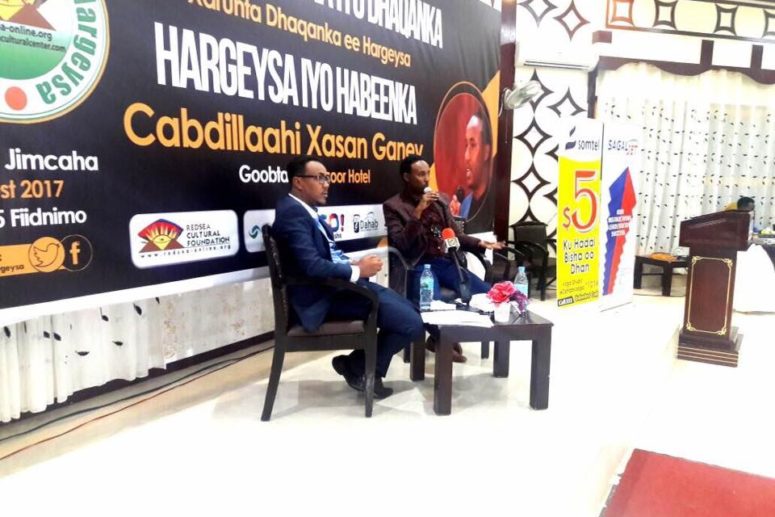During this presentation our academic dissuasion was guided by a project work that focuses on one of the academic success stories from Somaliland; Abaarso Tech school. Mr. Harry Lee an American Filmmaker who is currently pursuing a Master’s degree in Education at Harvard University. He has spent three years in Somaliland teaching at Abaarso School and shared with us his findings on challenges and opportunities for the students to join the highly reputed institutions in the West.
The feature-length documentary which he made with his partners Ben Powell and Kate Griendling, about five Abaarso students who are applying to American schools with a lot of collective dreams and expectations on their shoulders set the discussion on multiple direction including appreciation for of artistic presentation of significant stories that shapes westerns understanding of developing nation. It was also used as a way to reflect the need to come up with a well-researched achievement stories that can inspire young Somalilanders through the voice of youth they related too.
The story detail follows Abdisamad, Roda, and Amaal who are students at Abaarso School of Science and Technology outside Hargeisa. Abaarso is an American-run school where Somaliland students attempt to secure scholarships to US universities so they can be better prepared to lead their country. Each of these three students has different motivations and dreams while at Abaarso. The odds are stacked against them as they apply to American schools but they hold out hope for a better future.
Conclusion
As it has become a prominent space for academic discussion, this forum has grown in number of area covered and attendants. Even though its weekly based aspiration is challenged with the fact that it is not possible to have PhD presentation every week, expanding its domain by having presentations of related published articles, masters research works that have strong relation to a project in the PhD level has gave the chance to hold the sessions on consistent base.
The range of participant is still mainly PhD students but once in a while when we have international scholars who could be benefit not only to the PhD circle but the overall academic development in Somaliland so as to make sure appropriate information collection strategies and locations are used for research which usually puts a question on how international researcher get local context in an objective manner directs our decision to incorporate such studies. this is well assured by making such presentation a public event in comparison to the closed PhD days presentations in order to reach every interested academic community member to takes part in it. the practice of making it a public event also is applied to presentations of internationally renowned scholars whose experience is significant to the wider community. The case of Dr. Severine Autesserre Dr. Michael Walls and Dr. Scot Pegg’s presentation nights are worth mentioning here.
The growing number of attendants and mailing list members is another encouraging fact that tells how much the forum is attaining its objective of identifying research works on progress, connecting researches, sharing experience and developing collective responsibility of assuring quality research works practice are utilized in researching socially significant matters. On an average we have had 245 participants with local and international mix with young Somalilanders taking the higher portion for attending most of the presentation even though our November presentations brought more of international participant due to the election observation mission for the presidential election. The gender balance seems to be more of male dominant both in number of researches presented and also attendants for the events which we hope will have a different future turn out.
All in all, the forum is going in the right direction which will yield the aspired input for the 40th Somali Studies international congress.



